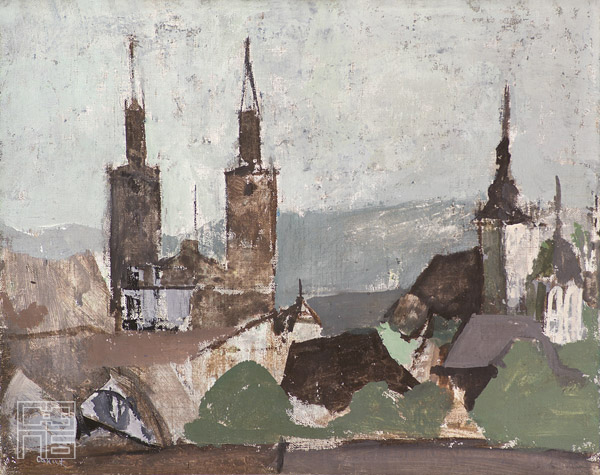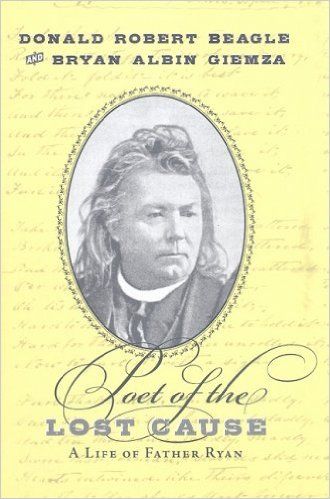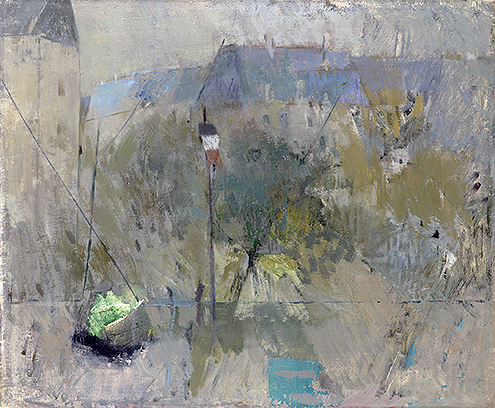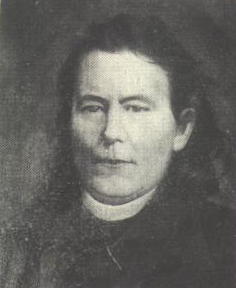
Ljubica Cuca Sokic
At the words of the sacred Virgin Mary, St John was sanctified in his womb. Our Lord and St John the Baptist visited each other in the wombs of their mothers (the wombs of our mother are little worlds), and it is said that the glorious Precursor placed himself on his knees in adoration of his Savior and that at the same instant he was given the use of reason. But the world will believe only what it sees. (Be this said in passing). —The Sermons of St Francis de Sales on Our Lady
A voice cries: “In the wilderness prepare the way of the LORD, make straight in the desert a highway for our God. Isaiah 40:3
John answered them, “I baptize with water; but among you stands one whom you do not know, even he who comes after me, the thong of whose sandal I am not worthy to untie. Gospel of John 1:26-27
Song of the Mystic
by Father Abram J Ryan
I walk down the Valley of Silence —
Down the dim, voiceless valley — alone!
And I hear not the fall of a footstep
Around me, save God’s and my own;
And the hush of my heart is as holy
As hovers where angels have flown!
Long ago was I weary of voices
Whose music my heart could not win;
Long ago was I weary of noises
That fretted my soul with their din;
Long ago was I weary of places
Where I met but the human — and sin.
I walked in the world with the worldly;
I craved what the world never gave;
And I said: “In the world each Ideal,
That shines like a star on life’s wave,
Is wrecked on the shores of the Real,
And sleeps like a dream in a grave.”
And still did I pine for the Perfect,
And still found the False with the True;
I sought ‘mid the Human for Heaven,
But caught a mere glimpse of its Blue:
And I wept when the clouds of the Mortal
Veiled even that glimpse from my view.
And I toiled on, heart-tired, of the Human,
And I moaned ‘mid the mazes of men,
Till I knelt, long ago, at an altar
And I heard a voice call me:— since then
I walk down the Valley of Silence
That lies far beyond mortal ken.
Do you ask what I found in the Valley?
‘Tis my Trysting Place with the Divine.
And I fell at the feet of the Holy,
And above me a voice said: “Be mine.”
And there arose from the depths of my spirit
An echo — “My heart shall be Thine.”
Do you ask how I live in the Valley?
I weep — and I dream — and I pray.
But my tears are as sweet as the dewdrops
That fall on the roses in May;
And my prayer, like a perfume from censers,
Ascendeth to God night and day.
In the hush of the Valley of Silence
I dream all the songs that I sing;
And the music floats down the dim Valley,
Till each finds a word for a wing,
That to hearts, like the Dove of the Deluge,
A message of Peace they may bring.
But far on the deep there are billows
That never shall break on the beach;
And I have heard songs in the Silence
That never shall float into speech;
And I have had dreams in the Valley,
Too lofty for language to reach.
And I have seen Thoughts in the Valley —
Ah! me, how my spirit was stirred!
And they wear holy veils on their faces,
Their footsteps can scarcely be heard:
They pass through the Valley like Virgins,
Too pure for the touch of a word!
Do you ask me the place of the Valley,
Ye hearts that are harrowed by Care?
It lieth afar between mountains,
And God and His angels are there:
And one is the dark mount of Sorrow,
And one the bright mountain of Prayer!

Father Abram J Ryan, the poet-priest of the South, born at Norfolk, Virginia, 15 August, 1839; died at Louisville, Kentucky, 22 April, 1886. He inherited from his parents, in its most poetic and religious form, the strange witchery of the Irish temper. Fitted for the priesthood by a nature at once mystic and spiritual, he was ordained just before the beginning of the Civil War, entered the Confederate army as a chaplain, and served in this capacity until the end of the war. In the hour of defeat he won the heart of the entire South by his “Conquered Banner,” whose exquisite measure was taken, as he told a friend, from one of the Gregorian hymns. The Marseillaise, as a hymn of victory, never more profoundly stirred the heart of France, than did this hymn of defeat, the hearts of those to whom it was addressed. It was read or sung in every Southern household, and thus became the apotheosis of the “Lost Cause”. While much of his later war poetry was notable in its time, his first effort, which fixed his fame, was his finest production. The only other themes upon which he sang were those inspired by religious feeling. Among his poems of that class are to be found bits of the most weird and exquisite imagery. Within the limits of the Southern Confederacy and the Catholic Church in the United States no poet was more popular. After the war he exercised the ministry in New Orleans, and was editor of “The Star,” a Catholic weekly; later he founded “The Banner of the South” in Augusta, Georgia, a religious and political weekly; then he retired to Mobile. In 1880 he lectured in several Northern cities. As a pulpit orator and lecturer, he was always interesting and occasionally brilliant. As a man he had a subtle, fascinating nature, full of magnetism when he saw fit to exert it; as a priest, he was full of tenderness, gentleness, and courage. In the midst of pestilence he had no fear of death or disease. Even when he was young his feeble body gave him the appearance of age, and with all this there was the dreamy mysticism of the poet so manifest in the flesh as to impart to his personality something which marked him off from al other men. His “Poems, Patriotic, Religious, and Miscellaneous” have reached dozens of printings. –Catholic Encyclopedia www.newadvent.org






Recent Comments